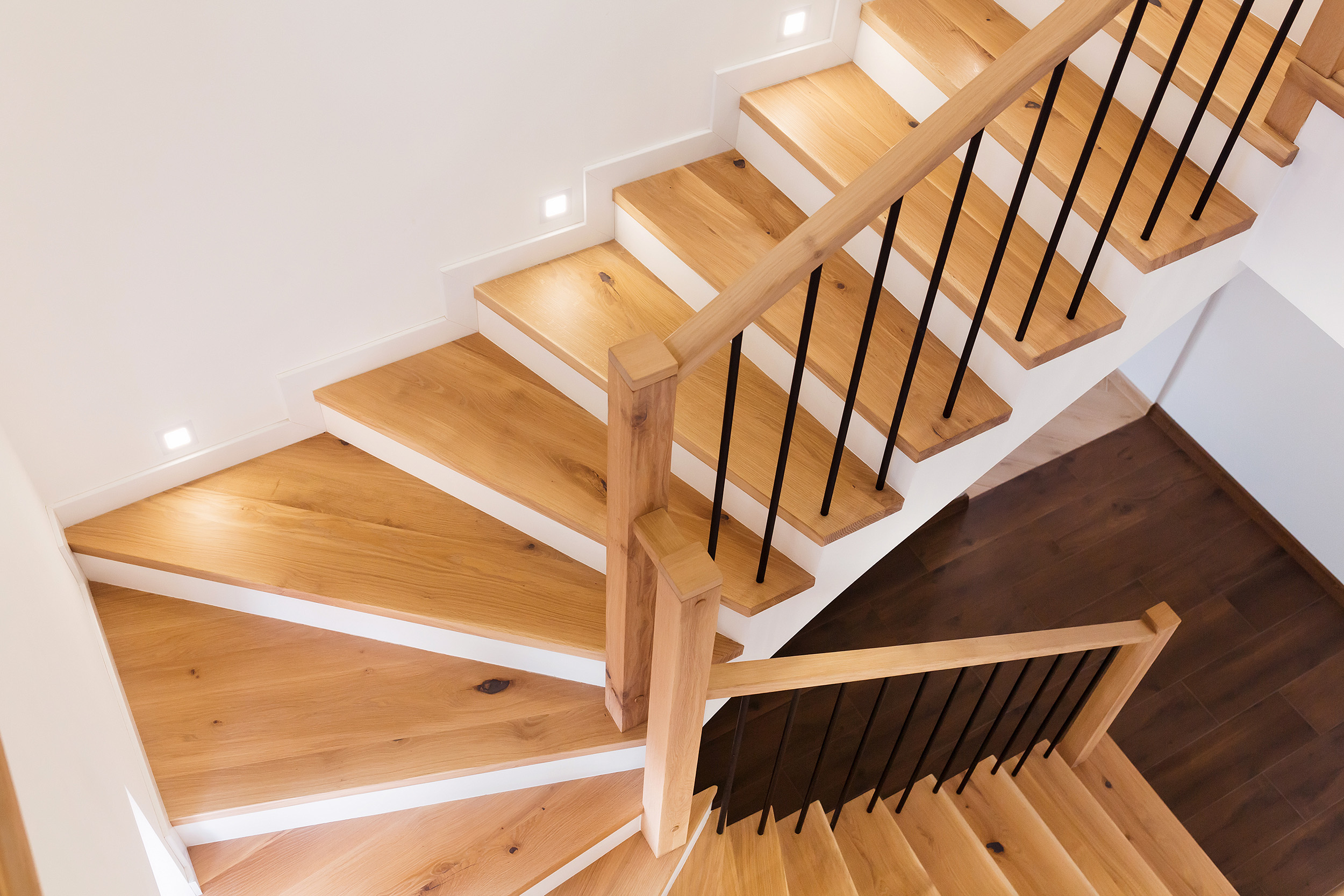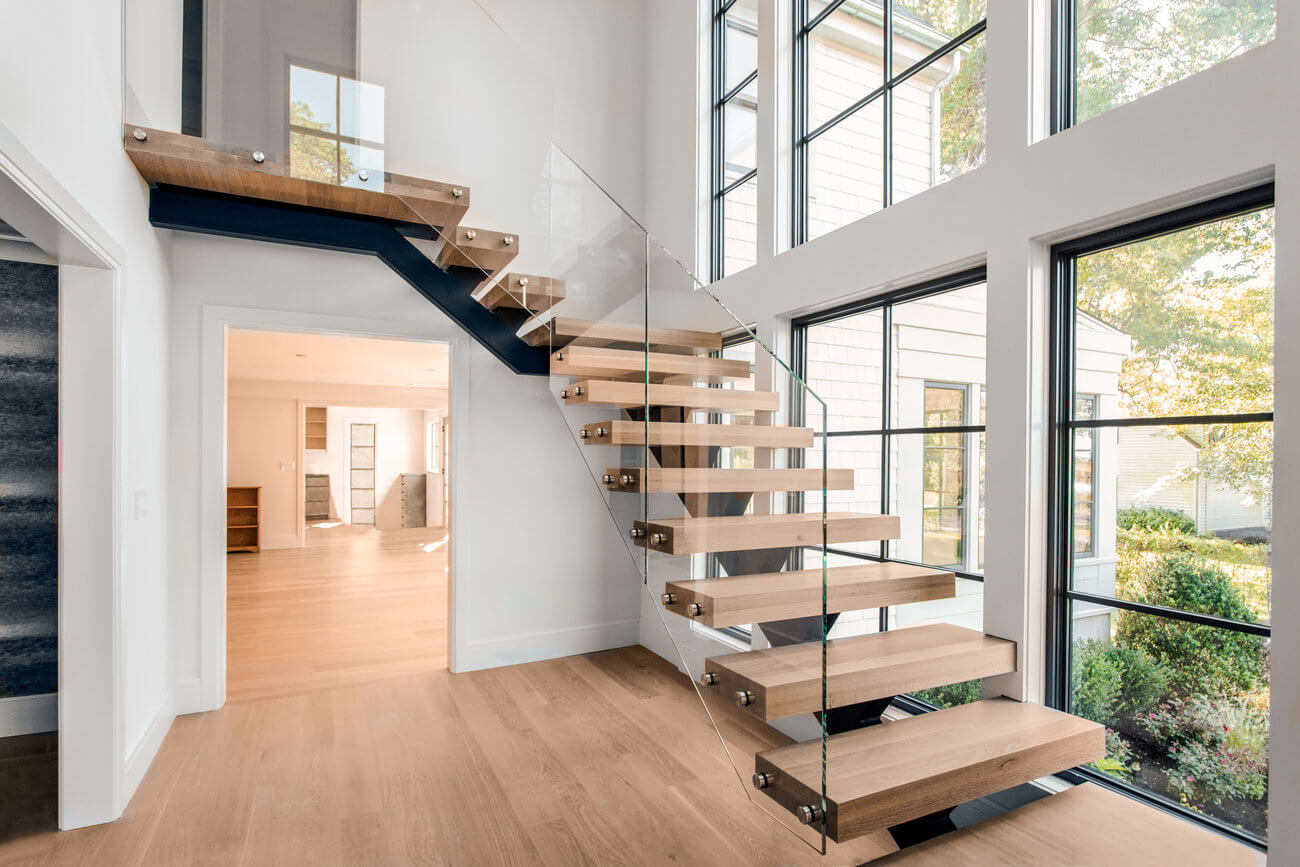One of the most critical decisions in building bespoke stairs involves choosing materials. The type of material used will directly impact your staircase’s look, functionality, and lifespan. As a homeowner in the UK, you would want to strike the perfect balance between practicality and visual attractiveness for a staircase that will stand the test of your needs and preferences.
1. Wood: The Classic and Versatile Option
Wood is one of the most wanted materials for bespoke stairs UK due to its timeless look and adaptability. Whether one wants that traditional feel or a modern look, wood can be done to fit into your design vision. Oak, beech, and walnut are common choices due to their durability and distinct grain patterns.
Care, however, should be taken into consideration for the type of wood: durable hardwoods like oak are more resistant to wear and tear and can thus be used in areas with high footfalls. Softer woods, like pine, would be cheaper but may wear off sooner, especially when children or a large family move about them.
If you are thinking of a wooden staircase, speak with a bespoke staircase manufacturer. They will advise on a type of wood suitable for your project.

2. Metal: Durability and Contemporary Appearance
Metal is great for a more modern, industrial look. Some of the robust, heavy-duty materials include steel, aluminum, and wrought iron. These offer clean, almost minimalistic lines, which is quite a good option for open-plan houses or homes where light needs to travel.
Various metals can also be combined for a personalised design or with other materials, like glass or wood. If you are working with a staircase manufacturer, discuss how you can incorporate metal into your staircase design for the right balance between durability and style.
Metal stairs are a good investment due to their longevity. They often require less maintenance compared to wood. They do not warp, crack, or be infested by pests, and thus, they are particularly suitable for the UK’s variable climatic conditions.
Check out design possibilities here: https://www.vonka.co.uk/designs/.
3. Glass: Transparency and Elegance
Glass staircases are increasingly becoming popular options in homes nowadays. Due to the quality of glass, transparency allows the passing of light, creating an open and airy feeling. It is highly suitable for household owners who want to maximise the available space and achieve a clean, minimalist look.
Tempered glass is always adopted for custom stairs because it is durable and does not shatter easily. Combining glass with timber or metal provides an excellent contrasting impression, adding style and class to any home. However, the adoption of glass staircases needs consideration in terms of cleaning from time to time, which may be an obstacle if the priority is low maintenance.
When it comes to glass as the material, it is more about dealing with a bespoke stairs manufacturer UK that looks at the structural requirements to ensure it is safe and lasts longer.

4. Stone: Strength and Opulence
Stone staircases offer a premium option that evokes a feeling of luxury and permanence in your home. Most manufacturing materials used are very durable, including marble, granite, and limestone, which add elegance to the structure. As a finished product, it tends to be very resistant to wear and tear, so it would be perfect for high-traffic areas or even homes with kids and pets.
The disadvantage of stone stairs, though, is that they can be cold underfoot and much more expensive to install. If you’re looking for a top-notch, quality finish that will last a lifetime, stone can be the perfect option. Just make sure to approach a stairs manufacturer in the UK who has experience working with stone since proper installation is important to avoid any chance of cracking or shifting in the years to come.
5. Concrete: Modern and Strong
Concrete staircases are strong and have an industrial feel. This type of material is ideal for modern homes, as it can take different forms and shapes. For example, polished concrete will give a smooth look; raw concrete will have a more rugged appearance and be viewed more minimally.
One of the significant benefits of concrete is that it is very durable. It is highly resistant and can take very large loads, including a tremendous amount of traffic flow, without deteriorating. Concrete can also be coloured, textured, or combined with other materials, such as wood or glass, for additional character.
If you desire ultra-modern and durable stairs, a custom staircase fabricator can highlight several other concrete-use options.






